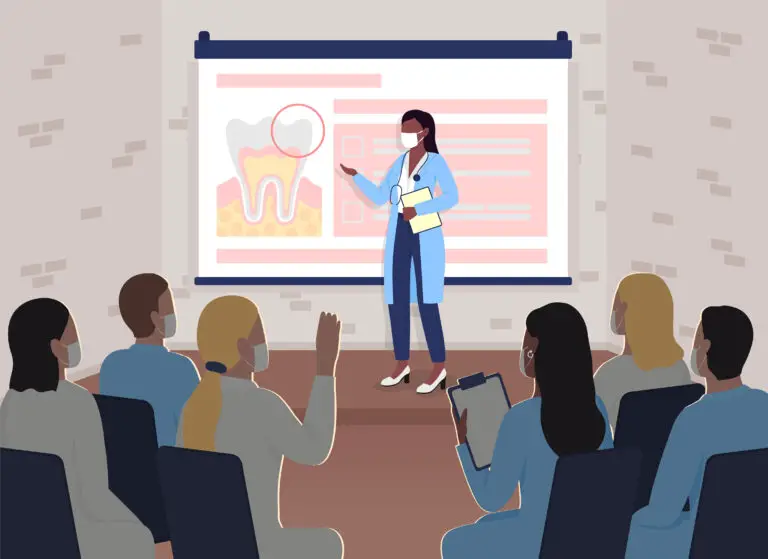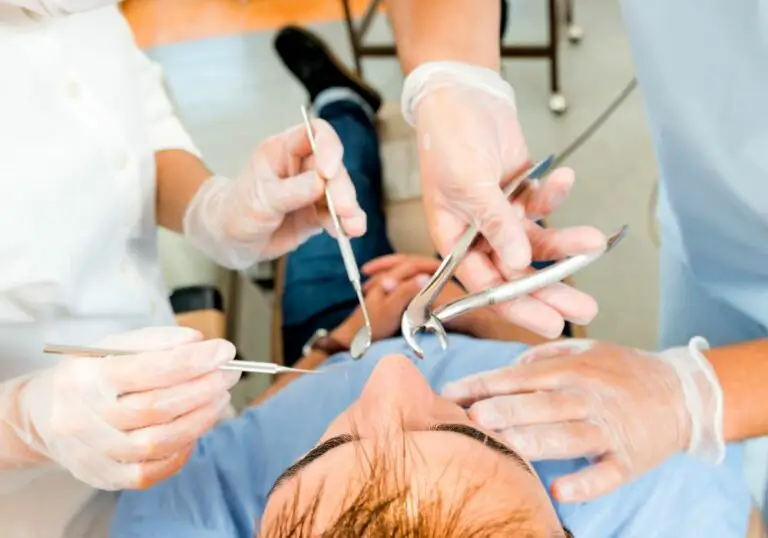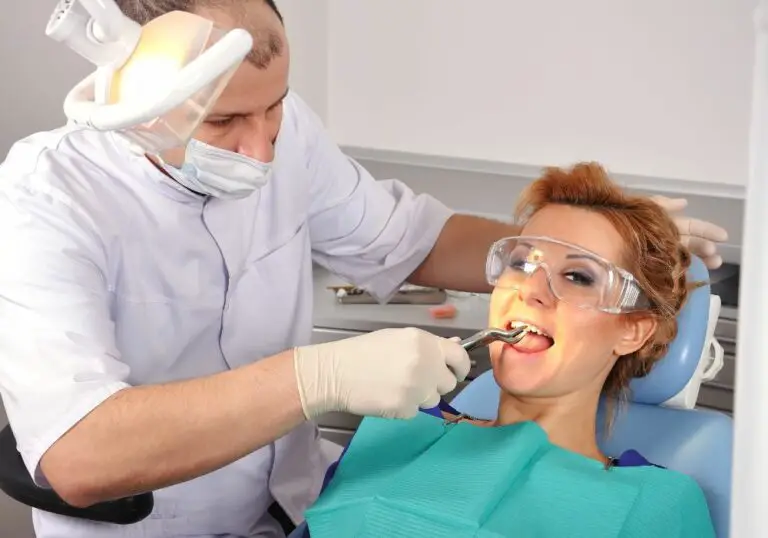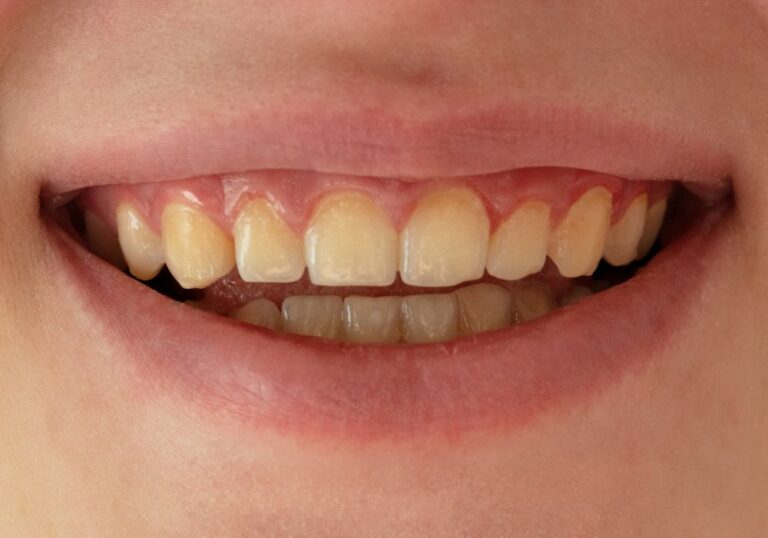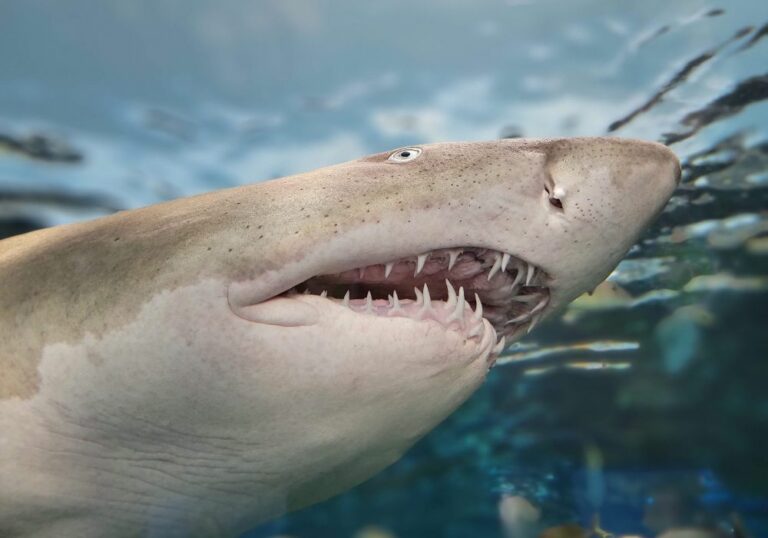Having your teeth professionally cleaned by your dentist or hygienist is an important way to remove built-up plaque and tartar that regular daily brushing and flossing at home can’t tackle. However, after a cleaning, your teeth and gums need a bit of time to recover before you dive back into eating normally. Here’s a detailed look at dental cleaning aftercare and when you can start eating again.
Can I eat right after a teeth cleaning?
Most dentists recommend waiting at least an hour after a professional teeth cleaning before eating anything. Here’s why:
Your mouth needs time to settle
During a teeth cleaning appointment, your hygienist scales and polishes your teeth to remove tartar, plaque, and stains. This involves some abrasion and irritation to your gums. Your gums need time to settle down before you put food particles in your mouth.
Eating too soon after a cleaning can introduce bacteria and food debris into your newly cleaned mouth. This increases your risk of developing new plaque buildup and tooth decay.
Your mouth may be numb
Many dentists use a topical anesthetic gel to numb your gums during the cleaning. The numbing effect usually lasts at least 30-60 minutes after the appointment.
If your mouth is still numb, you risk biting your tongue orinner cheek while chewing. Wait until the numbness fully wears off before eating to prevent accidental injury inside your mouth.
You just rinsed with fluoride
At the end of the teeth cleaning appointment, your dentist or hygienist may apply a fluoride rinse or gel. Fluoride helps strengthen tooth enamel and prevent cavities.
For the fluoride to work optimally, you need to avoid eating or drinking for at least 30 minutes. This allows time for the fluoride to fully absorb into your teeth.
Swallowing food or beverages too soon can wash away the fluoride before your teeth fully benefit from the treatment.
How long should I wait before eating after a dental cleaning?
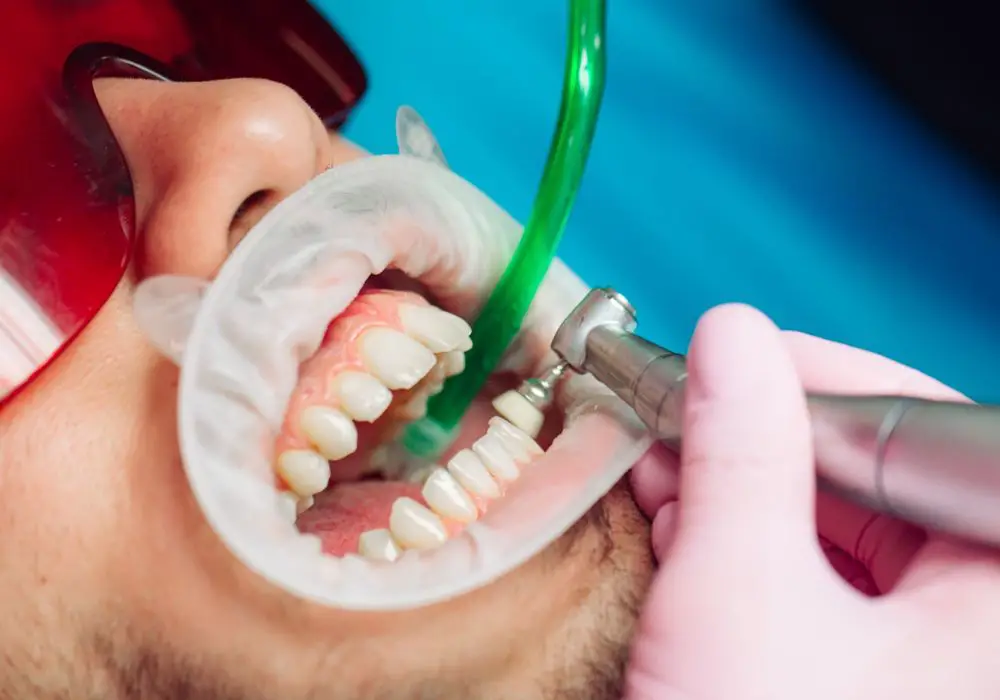
The general rule is to wait 60 minutes after your teeth cleaning before consuming any food or beverages.
This hour delay gives your mouth time to recover from the cleaning and allows the fluoride to work. It also prevents disrupting any clotting in your gums from the scaling.
Of course, follow your own dentist’s post-cleaning recommendations about eating. Some dentists may suggest waiting 30 minutes or up to 2 hours before eating, depending on the specifics of your appointment.
Here are some tips for the hour after your dental cleaning:
- Don’t eat or drink anything besides water. Avoid coffee, tea, soda, alcoholic beverages, and citrus juices as well.
- Don’t smoke or chew tobacco. This can impair healing and undo the cleaning you just received.
- Don’t rinse your mouth out with any mouthwash, either. Standard mouthwash can wash away the protective fluoride applied by your dental hygienist.
- Avoid sticky, hard, or chewy foods. Soft foods are best after a cleaning.
- Don’t floss before eating. Flossing could disrupt a healing blood clot and delay gum healing.
- Rinse your mouth with warm salt water to help soothe gums before eating.
- Take over-the-counter pain medication as needed if your gums remain sore. This can make eating more comfortable.
What foods should I eat after a dental cleaning?
Within the first 24 hours after your teeth cleaning, stick to soft, cool foods that won’t irritate your gums. Some good options include:
- Yogurt, pudding, applesauce, or cottage cheese
- Mashed or baked potatoes
- Scrambled eggs
- Oatmeal or porridge
- Soup, broth, or bouillon
- Ice cream, popsicles, slushies, or smoothies
- Jello or sugar-free gelatin
- Mashed ripe banana
- Meal replacement shakes or protein shakes
Avoid any spicy, salty, acidic, or crunchy foods during the first day or so. These can cause pain and prolong healing:
- Chips, pretzels, popcorn
- Nuts, crunchy granola
- Raw fruits and vegetables
- Hard breads and bagels
- Spicy salsa or sauces
- Citrus fruits and juices
- Pickles
- Vinegar and vinaigrette dressings
- Alcohol, carbonated beverages
After 24 hours, you can typically resume your normal healthy diet. But continue avoiding sticky foods that can get trapped between teeth for a few days. Minimize candy, caramels, taffy, gum, cookies, cakes, and biscuits that adhere to tooth surfaces.
Here are some tooth-friendly foods you can enjoy a few days after your cleaning:
- Tender cooked vegetables like steamed carrots, green beans, or zucchini
- Soft whole grain pasta, brown rice, quinoa
- Shredded wheat cereal, oatmeal
- Fish, chicken, eggs, meatloaf
- Canned fruits like peaches, pears, apricots
- Well-cooked beans and lentils
- Hummus and avocado
Can I drink coffee after a teeth cleaning?
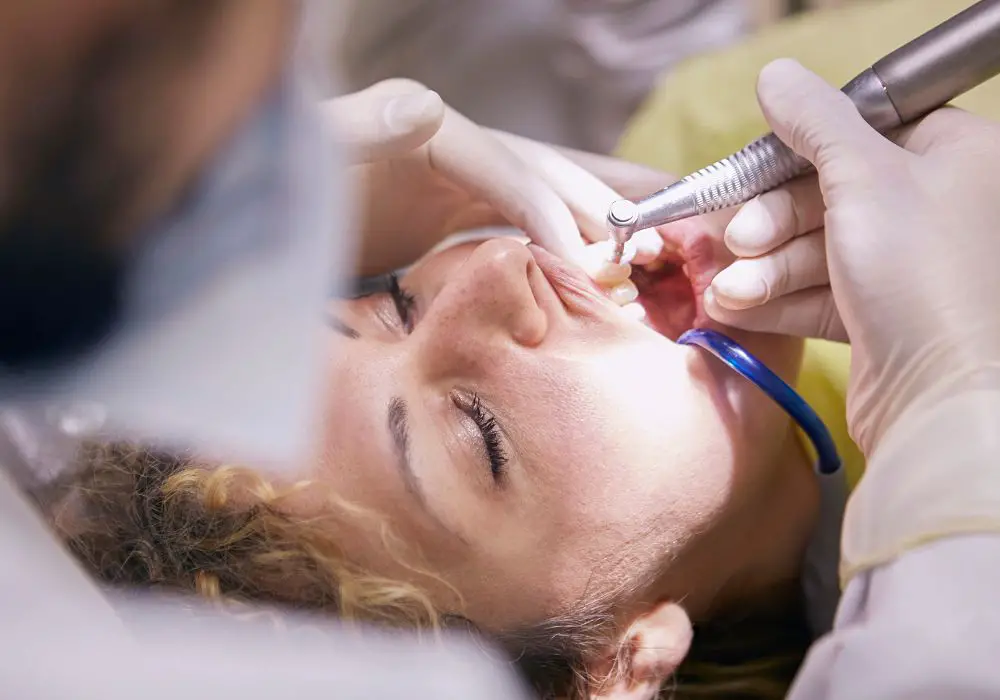
Most dentists recommend avoiding coffee, tea, soda, and other staining drinks for at least 24 hours after your teeth are professionally cleaned.
The tooth polishing and enamel abrasion that occurs during a dental cleaning can make your teeth more porous and vulnerable to new stains. Consuming dark beverages too soon exposes your teeth to more potential discoloration before the tooth enamel fully recovers.
Drinking very hot or cold liquids right after a cleaning can also irritate sensitive gums and teeth.
After the first 24 hours, you can generally resume coffee drinking as normal. But don’t overdo it! Remember, frequent coffee and tea drinking without proper oral hygiene leads to tooth staining and discoloration over time.
Here are some tips for drinking coffee safely after a dental cleaning:
- Use a straw to minimize contact between the coffee and your teeth.
- Rinse your mouth with water after finishing your coffee.
- Wait at least 30 minutes after coffee before brushing. The combination of brushing too soon after acidic coffee can erode enamel.
- Drink coffee in moderation, limiting intake to 1-2 cups per day.
- Avoid adding sugar or sweet creamers that increase the beverage’s cavity-causing potential.
Maintain your bright smile by brushing twice daily, flossing at least once daily, and attending regular dental cleanings and checkups. Avoid constantly sipping coffee throughout the day. Follow these rules and you can both enjoy your coffee and keep your teeth looking their best!
When can I resume normal brushing and flossing after a cleaning?
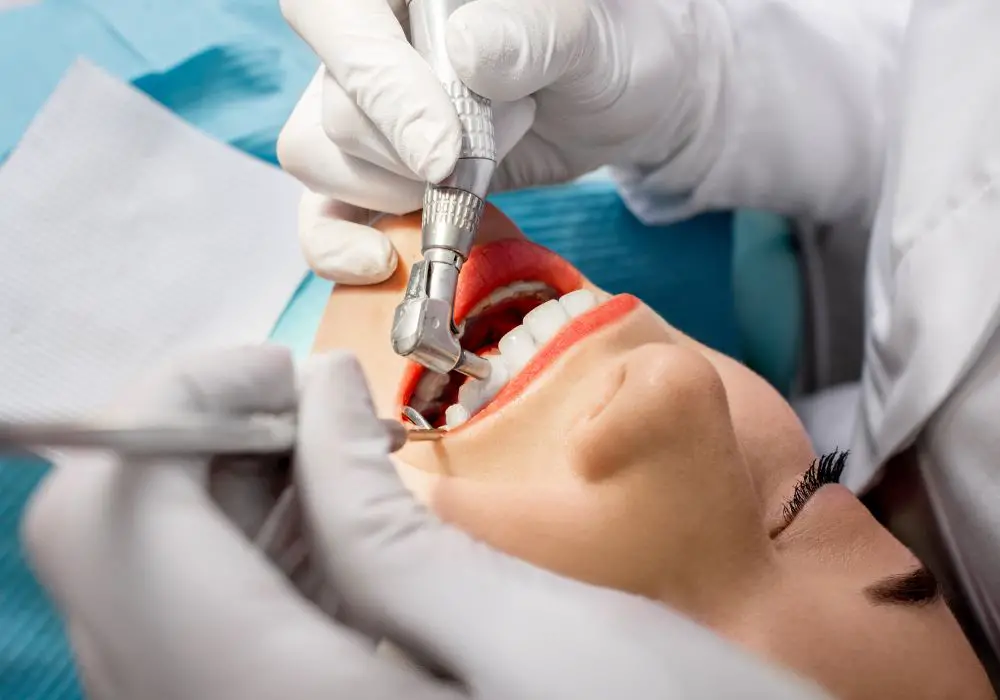
It’s important not to brush or floss too vigorously in the hours immediately after your dental cleaning.
Here are some general timelines for resuming your normal oral hygiene routine:
Brushing: Wait at least 1 hour after your cleaning before brushing your teeth. Brushing too soon can damage the smooth tooth surfaces that were polished during the cleaning. After 1 hour, you can brush gently with a soft-bristled toothbrush and fluoride toothpaste. Avoid vigorous scrubbing motions.
Flossing: Avoid flossing for the first 6-12 hours after your cleaning. Flossing can disrupt healing blood clots and expose your gums to new bacteria before they have fully recovered. After 6-12 hours, you can typically resume regular flossing. Use a gentle motion and avoid snapping floss against the gums.
Mouthwash: Unless specifically instructed otherwise, wait 24 hours before using mouthwash. The alcohol in some rinses can sting and irritate your freshly cleaned gums. After 24 hours, you can resume gently swishing with an alcohol-free rinse to help prevent plaque buildup.
Water flossing: Water flossers use pressurized water streams to remove plaque between teeth. Avoid water flossing for at least 3-5 days after your professional cleaning. The pressure can irritate your gums and potentially reopen healing wounds. After several days, you can resume water flossing on the lowest comfortable setting.
Listen to any customized post-cleaning instructions from your dentist. With proper healing time, you’ll soon be able to thoroughly clean your teeth and gums again and maximize the benefits of your dental cleaning.
FAQ
What foods should I absolutely avoid after a teeth cleaning?
Foods to avoid include:
- Hard, crunchy, chewy foods like chips, nuts, seeds, popcorn, raw veggies, hard bread, pizza crust
- Sticky, tacky foods like caramel, taffy, dried fruit, soft candies, gum, granola bars
- Spicy foods seasoned with chili peppers or black pepper
- Salty foods like pretzels, cured meats, pickles
- Acidic foods like citrus fruits, citrus juices, vinegars
- Carbonated soft drinks and alcoholic beverages
- Extremely hot foods and beverages which can irritate the gums
How soon after a dental cleaning can I brush and floss?
Wait at least 1 hour before gently brushing after a dental cleaning. Wait 6-12 hours before gently flossing. This gives your gums time to heal before reintroducing oral hygiene tools.
Should I avoid smoking after a dental cleaning?
Yes, avoid any tobacco use after a dental cleaning. Smoking can slow healing, increase irritation, and undo the oral health benefits from the cleaning.
Is it okay to eat with numb gums after a cleaning?
No, wait until full sensation returns to your gums before eating. Numb gums increase your risk of unknowingly biting your lip or cheek.
Why does my dentist tell me not to rinse after a cleaning?
Rinsing washes away the fluoride treatment applied to strengthen enamel. Avoid mouthwash for 24 hours and skip brushing for 1 hour to allow the fluoride to fully absorb.
In summary, be patient with eating and oral hygiene after a dental cleaning. Follow your dentist’s instructions to allow proper healing and maximize the cleaning’s benefits. Within 24 hours you can generally resume a normal, healthy diet and oral care routine.

